WhatsApp Bulk Message Sender Software Tips for 2025 Success
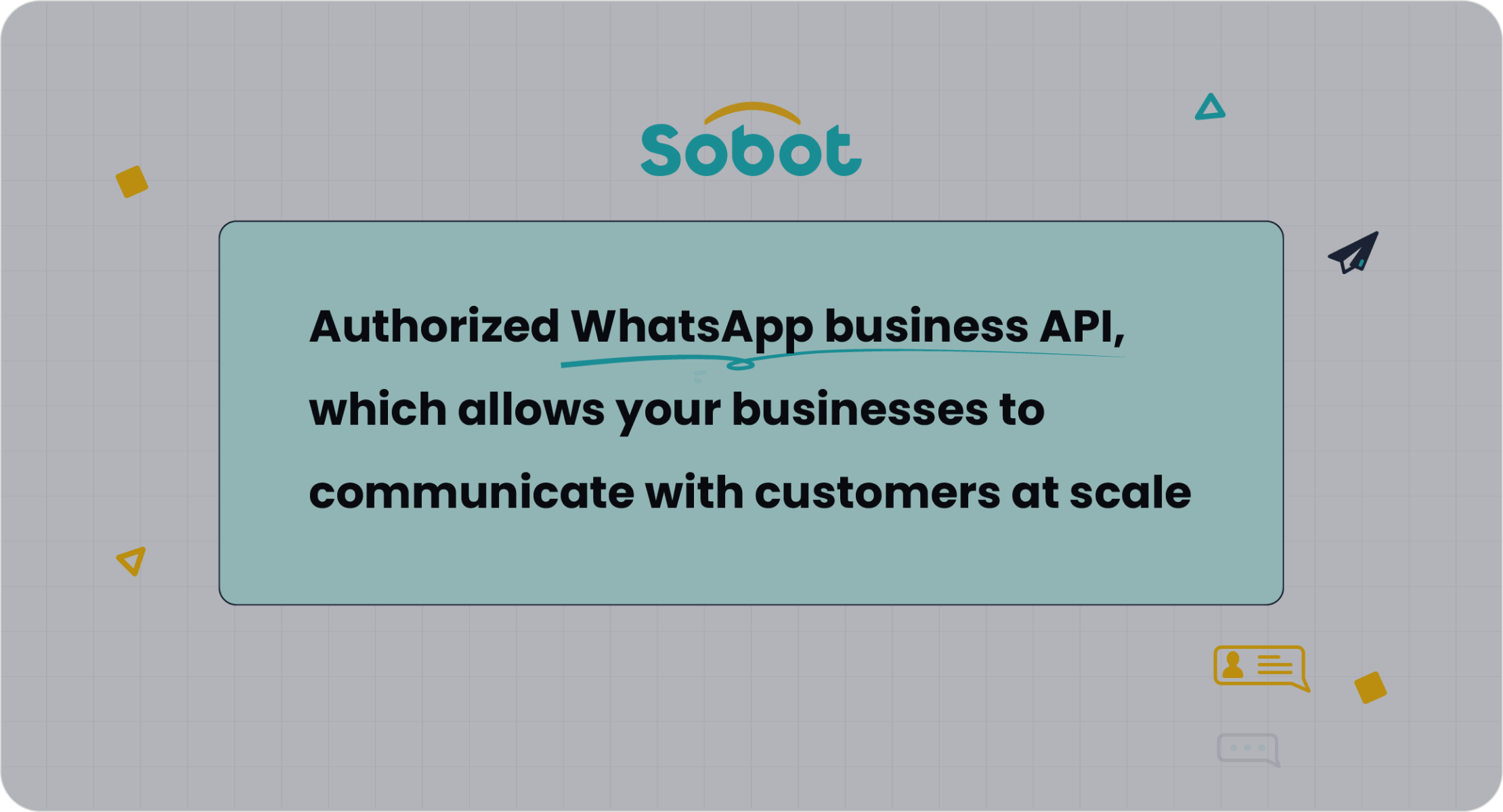
WhatsApp has become a game-changer for marketing in 2025, offering businesses unparalleled opportunities to connect with their audience. With over 966 million monthly active users on WhatsApp Business globally, the platform provides an enormous reach. Additionally, Meta's decision to make service conversations free from November 2024 and utility templates free by April 2025 drastically reduces marketing costs, making WhatsApp an even more attractive option for businesses.
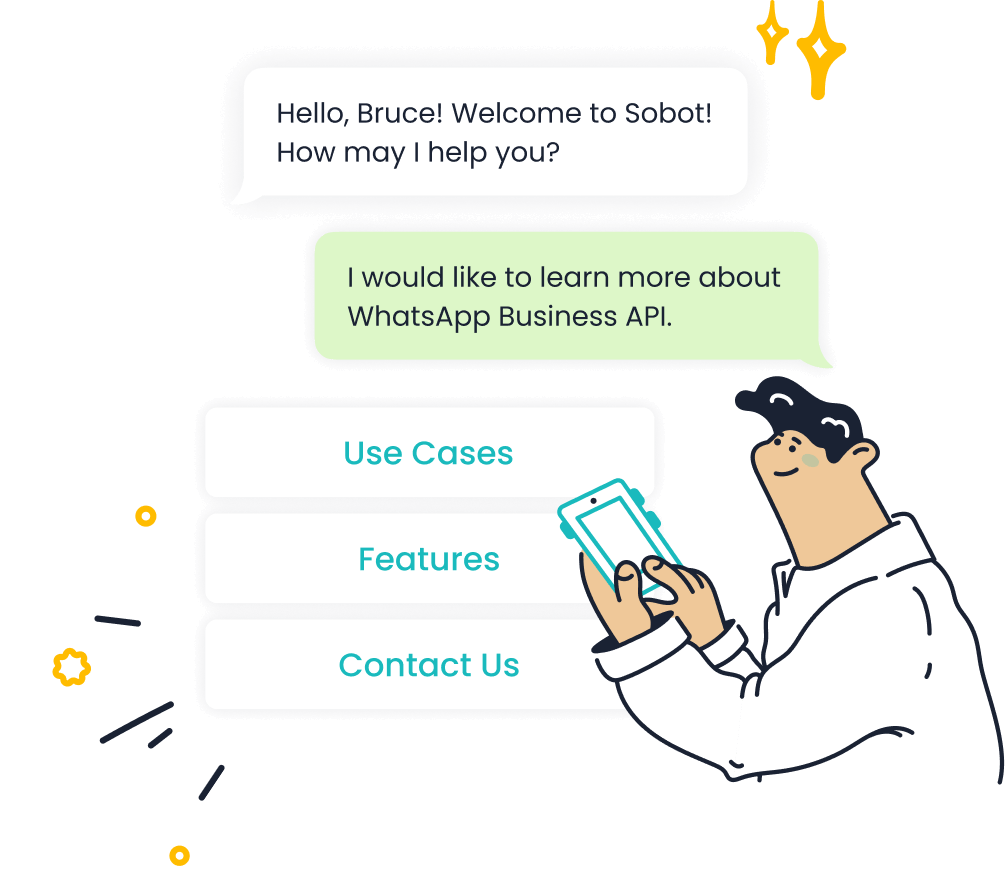
Automation is critical for scaling your WhatsApp marketing efforts. Tools like WhatsApp bulk message sender software enable you to send personalized messages to thousands of customers swiftly. With 78% of users preferring WhatsApp for brand interactions, leveraging such tools ensures higher engagement rates. Sobot, a trusted WhatsApp Business Solution Provider, helps businesses streamline communication with features like bulk messaging, smart chat routing, and 24/7 chatbot support. This approach saves time and enhances customer satisfaction.
Understanding WhatsApp Bulk Messaging
What is WhatsApp bulk messaging?
WhatsApp bulk messaging allows businesses to send messages to multiple contacts simultaneously. This method is ideal for sharing updates, promotions, and announcements efficiently. Unlike traditional email marketing, bulk messages on WhatsApp feel more personal and immediate. For example, companies in the banking sector now use WhatsApp to send transaction alerts, reducing operational costs while improving customer satisfaction.
Tip: Use WhatsApp bulk messaging to notify customers about flash sales or limited-time discounts. This approach ensures your audience stays informed and engaged.
Benefits of WhatsApp bulk messaging for businesses
WhatsApp bulk messaging offers several advantages that can transform your marketing efforts:
- Personalized Communication: Tailor messages to individual customers using placeholders like their name or purchase history.
- Higher Engagement Rates: WhatsApp campaigns can deliver up to three times the ROI compared to traditional methods.
- Cost Efficiency: Automating messages reduces manual effort and operational costs.
- Improved Customer Retention: Businesses using WhatsApp marketing see a 68% repeat customer rate.
| Benefit | Description |
|---|---|
| Enhanced Engagement | Customers prefer messaging apps for communication, with 70% favoring WhatsApp. |
| Increased Sales | Recover 60% of abandoned carts through WhatsApp marketing. |
| Faster Customer Service | WhatsApp Business improves response times by 225%. |
How WhatsApp bulk messaging enhances customer engagement
Bulk messages on WhatsApp create a direct and interactive channel between you and your customers. By automating customer support and sending proactive updates, you can keep your audience informed and satisfied. Metrics like delivery rates (90-95%) and open rates (85-95%) highlight the effectiveness of WhatsApp marketing. Additionally, features like click-through rates (15-20%) and reply rates (35-40%) show how well customers respond to these messages.
Note: Personalized WhatsApp campaigns not only boost engagement but also drive conversions. Sales through conversational commerce channels are expected to grow to $290 billion by 2025.
Tips for Effective WhatsApp Marketing Automation
Segmenting audiences for personalized communication
Segmenting your audience is the foundation of effective WhatsApp marketing automation. By categorizing customers based on demographics, preferences, or behaviors, you can send targeted and personalized messages that resonate with their needs. For instance, you might group customers by purchase history or location to tailor promotions. This strategy ensures your messages feel relevant, increasing engagement rates.
| Strategy | Description |
|---|---|
| Audience Segmentation | Group customers by preferences, behaviors, and demographics for relevance. |
| Personalized Messaging | Address customers by name and align messages with their interests. |
| Interactive Content | Use polls or quizzes to boost engagement and gather insights. |
Adidas demonstrated the power of segmentation by creating a WhatsApp hotline for amateur football teams in London. Over six days, they connected players with top athletes, gaining significant media attention. This example highlights how segmentation can amplify your campaign’s impact.
Creating and using pre-approved message templates
Pre-approved message templates simplify compliance with WhatsApp’s guidelines while maintaining brand consistency. These templates allow you to automate WhatsApp marketing without risking spam-like behavior. For example, you can use templates for order confirmations, appointment reminders, or promotional campaigns.
Businesses using pre-approved templates report improved communication efficiency. These templates also enable personalization, such as addressing customers by name or referencing recent interactions. This approach enhances customer satisfaction and ensures your messages align with WhatsApp’s policies.
Tip: Always review your templates to ensure they meet WhatsApp’s guidelines. This reduces the risk of delivery failures and keeps your campaigns running smoothly.
Scheduling messages for optimal engagement
Timing plays a crucial role in WhatsApp marketing automation. Scheduling messages ensures your audience receives them when they are most likely to engage. For example, you can automate WhatsApp marketing for lead nurturing, customer onboarding, or promotional campaigns.
Brands like Speedhome and Lamarsa Coffee have successfully used scheduling to enhance engagement. Speedhome doubled its monthly new customer acquisitions, while Lamarsa Coffee increased sales by 50% across six countries. These results show how strategic scheduling can drive measurable outcomes.
To optimize your scheduling strategy, consider your audience’s time zones and habits. Respect privacy by obtaining opt-ins and personalize messages to make them more impactful. Visual content, such as images or videos, can further boost engagement.
Note: Regularly analyze your campaign performance to refine your scheduling approach. Experiment with different times and content types to find what works best for your audience.
Integrating WhatsApp with CRM and marketing tools.
Integrating WhatsApp with your CRM and marketing tools creates a seamless communication ecosystem. This integration allows you to centralize customer data, track interactions, and deliver personalized experiences. For example, linking WhatsApp with a CRM like Salesforce or HubSpot enables you to view customer purchase history and preferences in real time. This insight helps you craft targeted messages that resonate with your audience.
The benefits of integration extend beyond personalization. You gain access to real-time analytics, which track metrics like response times and message sentiment. These insights allow you to refine your strategies and improve customer engagement. Additionally, performance metrics such as conversion rates and customer feedback help you measure the success of your campaigns. Businesses that integrate WhatsApp with their marketing tools often see higher open and response rates, fostering loyalty through tailored offers.
Tip: Use automation features to trigger WhatsApp messages based on customer actions, such as abandoned carts or completed purchases. This approach not only saves time but also boosts conversion rates.
Sobot’s WhatsApp Business API simplifies this process by offering seamless integration with CRM systems. It supports features like data analytics and workflow automation, enabling you to manage customer interactions efficiently. By leveraging these tools, you can enhance engagement and drive better results.
Tracking performance and optimizing campaigns.
Tracking performance is essential for optimizing your WhatsApp marketing campaigns. Start by monitoring key metrics such as delivery rates, open rates, and response times. These indicators reveal how well your messages are performing and where improvements are needed. For instance, a low open rate might suggest that your message timing or content needs adjustment.
Advanced analytics tools can provide deeper insights. They reveal customer behavior patterns, such as the types of messages that generate the most engagement. Use this data to refine your campaigns. For example, if promotional messages with images perform better, you can incorporate more visuals into your strategy. Metrics like conversion rates and customer feedback also help you assess the effectiveness of your campaigns.
Note: Regularly analyze your campaign data to identify trends and opportunities for improvement. Small adjustments, like tweaking your message tone or timing, can lead to significant gains.
Sobot’s WhatsApp Business API includes robust analytics features that simplify performance tracking. It provides detailed reports on customer interactions, helping you make data-driven decisions. By leveraging these insights, you can optimize your campaigns for maximum impact and ROI.
Choosing the Right WhatsApp Bulk Message Sender Software
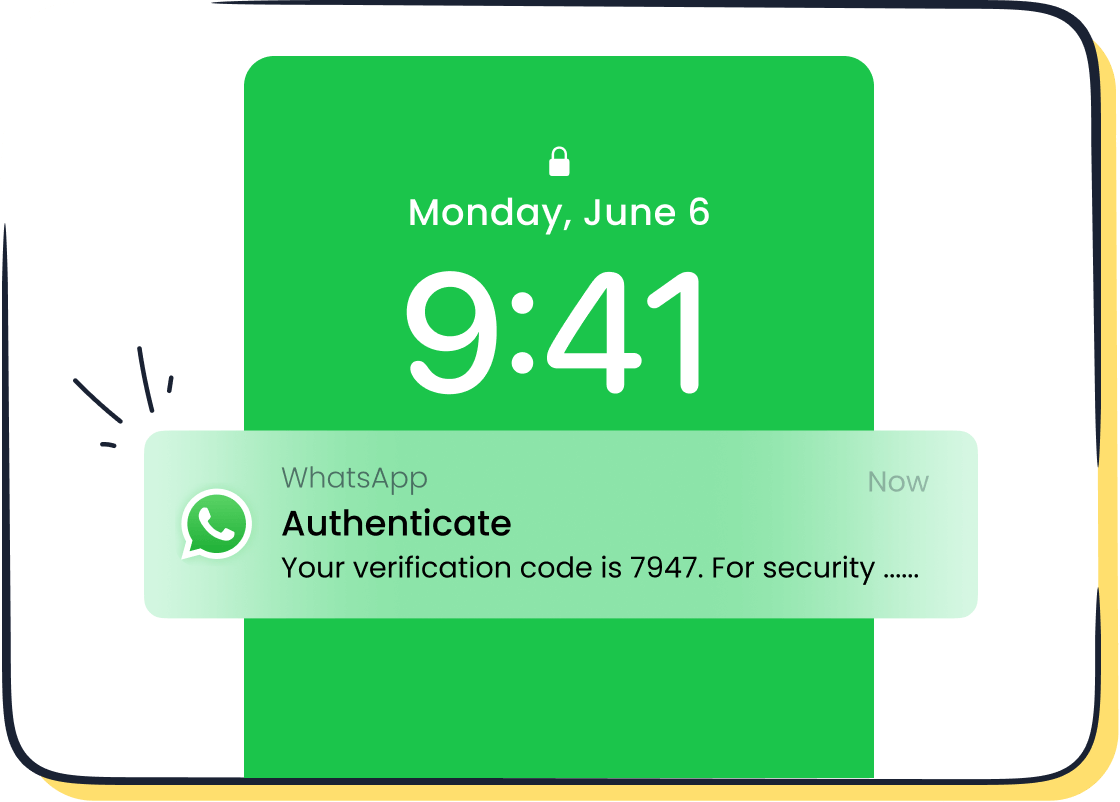
Key features to look for in WhatsApp bulk message sender software
When selecting WhatsApp bulk message sender software, focus on features that enhance efficiency and engagement. Look for tools that offer seamless WhatsApp Business API integration. This ensures your business systems connect smoothly with WhatsApp for automated interactions. Two-way messaging is another essential feature. It allows you to engage in real-time conversations, building stronger relationships with your customers.
Other critical features include bulk messaging for promotions, automation with chatbots to save time, and pre-approved message templates to ensure compliance. Rich media support, such as images and videos, can make your messages more engaging. Analytics and reporting tools help you track campaign performance, while team collaboration features allow multiple agents to manage conversations effectively. Finally, prioritize software with strong security and compliance measures to protect customer data.
| Feature | Description |
|---|---|
| WhatsApp Business API Integration | Connects business systems with WhatsApp for automated interactions. |
| Two-Way Messaging | Enables real-time conversations for better customer relationships. |
| Bulk Messaging | Sends updates and promotions to large audiences efficiently. |
| Automation and Chatbots | Automates responses to improve efficiency. |
| Analytics and Reporting | Tracks interactions to measure campaign success. |
Comparison of top tools, including Sobot’s WhatsApp Business API
Several tools offer WhatsApp bulk message sender capabilities, but their features and usability vary. Twilio’s WhatsApp API is known for its scalability and custom chatbot-building options. However, it often involves higher costs and complex setups. In contrast, Sobot’s WhatsApp Business API provides an all-in-one contact center solution that is user-friendly and efficient. It supports bulk messaging, 24/7 chatbot responses, and workflow automation. Sobot has helped over 10,000 brands improve their Net Promoter Scores and reduce costs.
Sobot also excels in analytics, offering detailed reports to optimize your WhatsApp campaigns. Its integration with CRM systems ensures seamless data management, making it a reliable choice for businesses aiming to scale their marketing efforts. While Twilio focuses on customization, Sobot emphasizes ease of use and cost-effectiveness, making it ideal for businesses of all sizes.
Tip: Choose a tool that aligns with your business needs. If you prioritize simplicity and efficiency, Sobot’s solution is a great option.
Cost considerations and pricing models
Understanding the pricing models of WhatsApp bulk message sender software is crucial. WhatsApp recently introduced changes to its pricing structure. Service conversations became free in November 2024, and utility templates will be free starting April 2025. These updates significantly reduce costs for businesses. However, template messages will incur charges after the free period, so plan your campaigns accordingly.
WhatsApp’s internet-based platform offers cost-effective messaging, even for international audiences. Sobot’s WhatsApp Business API provides transparent pricing, ensuring you only pay for what you use. This flexibility makes it easier to manage your marketing budget. Additionally, Sobot’s automation features help reduce operational costs, offering a high return on investment.
| Date | Change Description | Notes |
|---|---|---|
| November 1, 2024 | Service conversations will be free | Replaces the previous limitation of 1000 free service conversations per month. |
| April 1, 2025 | Free use of utility templates within a 24-hour window | Businesses will be charged per template message after this period. |
Note: Evaluate your messaging needs and choose a pricing model that aligns with your business goals. Sobot’s transparent pricing ensures you get the best value for your investment.
Ensuring compliance with WhatsApp Business policies.
Adhering to WhatsApp Business policies is essential for maintaining trust and avoiding penalties. WhatsApp prohibits unsolicited messages, so every message you send must have the recipient's consent. This ensures your communication aligns with WhatsApp's terms of service and avoids being flagged as spam. Businesses that fail to comply risk account suspension or permanent bans.
To stay compliant, you must understand WhatsApp's guidelines. These include obtaining user opt-ins before sending messages and ensuring your campaigns respect data privacy laws. For example, you should never share customer information without permission. Following these rules not only protects your business but also builds customer trust.
| Compliance Aspect | Description |
|---|---|
| User Consent | Every message must be sent with the user's consent to avoid being classified as spam. |
| Data Privacy | Adherence to data privacy regulations is crucial to maintain user trust and comply with laws. |
| Legal Regulations | Compliance with legal standards is necessary to ensure that bulk messaging practices are lawful. |
WhatsApp Business features, such as pre-approved message templates, simplify compliance. These templates ensure your messages meet WhatsApp's standards, reducing the risk of delivery failures. Enhanced templates also make it easier to manage campaigns while staying within policy guidelines.
Regular updates to your bulk messaging software can help you stay compliant. Many tools, including the WhatsApp Business App, offer features like improved analytics and automated compliance checks. These updates ensure your campaigns align with WhatsApp's evolving policies. For example, Sobot’s WhatsApp Business API includes features like workflow automation and data analytics, which help you monitor and adjust your campaigns effectively.
Tip: Always review WhatsApp’s terms of service and update your practices accordingly. This proactive approach minimizes risks and ensures your campaigns run smoothly.
By following these steps, you can maintain compliance, protect your business reputation, and maximize the benefits of WhatsApp Business features.
Overcoming Challenges in WhatsApp Marketing Automation
Avoiding spam-like behavior and maintaining trust
Building trust with your customers is essential when using WhatsApp for marketing. Spam-like behavior can harm your reputation and reduce customer engagement. To avoid this, always ensure your messages are relevant and valuable. Sending bulk messages without consent or context can lead to negative feedback and even account suspension.
Here are some strategies to maintain trust in your campaigns:
- Streamline the opt-in process to make it easy for customers to give consent. Always provide clear instructions for opting out.
- Use only approved message templates for initiating conversations. This ensures compliance with WhatsApp’s policies.
- Respect customer preferences by stopping messages immediately when they opt out.
By following these practices, you can create a positive experience for your audience. Trust grows when customers feel respected and valued.
Managing opt-ins and respecting user privacy
Proper opt-in management is critical for protecting user privacy and ensuring compliance with regulations like GDPR. When customers trust you with their data, you must handle it responsibly. Always obtain explicit consent before sending promotional messages or broadcast messages. This builds confidence and improves customer engagement.
To enhance privacy outcomes:
- Provide simple ways for customers to withdraw consent or unsubscribe from your WhatsApp campaigns.
- Follow data protection principles like data minimization. Only collect information necessary for your campaigns.
- Use personalized messaging to make your communication more relevant while respecting privacy.
These steps not only protect your customers but also improve the effectiveness of your WhatsApp mass message campaigns. Customers are more likely to engage when they feel their privacy is respected.
Addressing technical issues and delivery failures
Technical issues can disrupt your WhatsApp marketing efforts. Delivery failures, for example, can prevent your broadcast messages from reaching customers. To minimize these problems, monitor your campaigns closely and use reliable tools like Sobot’s WhatsApp Business API.
Here’s how you can address common issues:
- Regularly update your software to ensure compatibility with WhatsApp’s latest features.
- Use analytics to identify delivery problems and optimize your sending bulk messages strategy.
- Test your campaigns before launching them to avoid errors.
By taking these steps, you can ensure smooth operations and maintain high customer engagement. Reliable tools and proactive monitoring are key to overcoming technical challenges.
Staying updated with WhatsApp’s evolving policies.
WhatsApp frequently updates its policies to improve user experience and ensure compliance with global regulations. Staying informed about these changes is essential for maintaining effective marketing campaigns and avoiding penalties. You can take proactive steps to ensure your business aligns with WhatsApp’s evolving requirements.
-
Subscribe to Official Updates
WhatsApp provides regular updates through its official blog and developer documentation. Subscribing to these resources ensures you receive the latest information on policy changes, new features, and compliance guidelines. -
Monitor Policy Announcements
Keep an eye on announcements related to message templates, pricing structures, and user consent requirements. For example, WhatsApp recently made service conversations free and introduced free utility templates. These updates can significantly impact your marketing strategy. -
Train Your Team
Educate your team about WhatsApp’s policies. Regular training sessions help your staff understand compliance requirements and avoid mistakes that could lead to account suspension. Use real-world examples to make the training more engaging. -
Leverage Compliance Tools
Use tools like Sobot’s WhatsApp Business API to simplify compliance. Features like pre-approved message templates and automated opt-in management help you adhere to WhatsApp’s guidelines effortlessly.
Tip: Schedule periodic reviews of your messaging practices to ensure they align with WhatsApp’s latest policies. This habit minimizes risks and keeps your campaigns running smoothly.
Staying updated with WhatsApp’s policies not only protects your business but also enhances customer trust. When you follow the rules, your audience feels more secure interacting with your brand.
Real-World Success Stories with WhatsApp Marketing
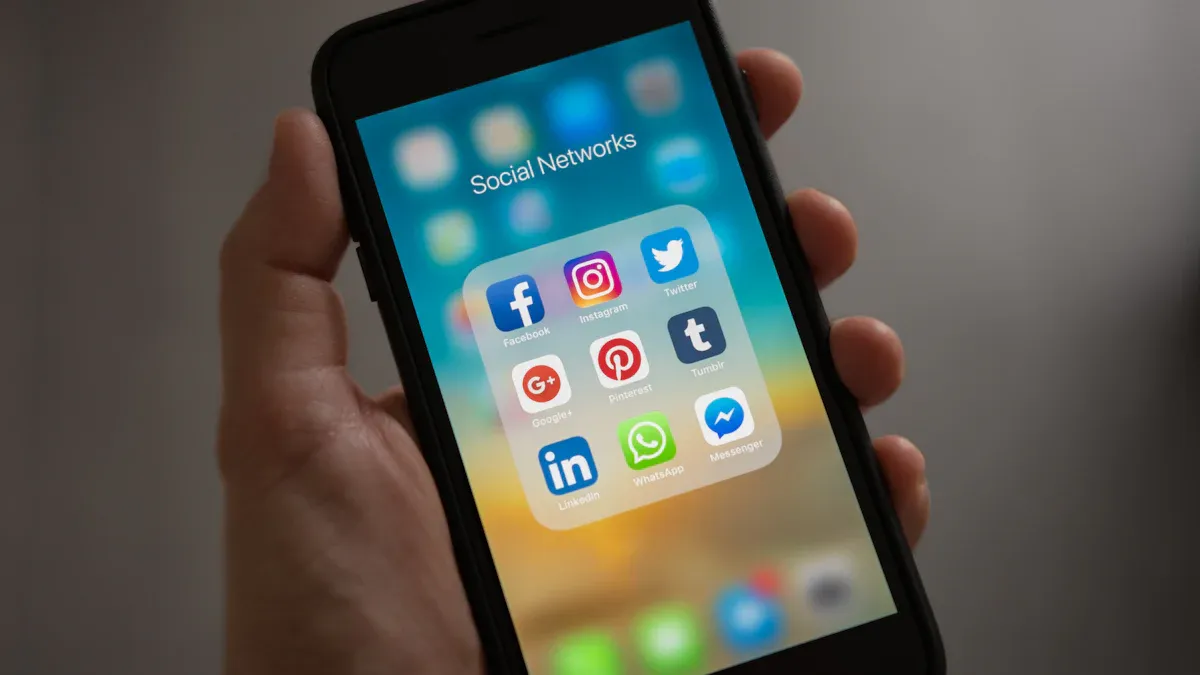
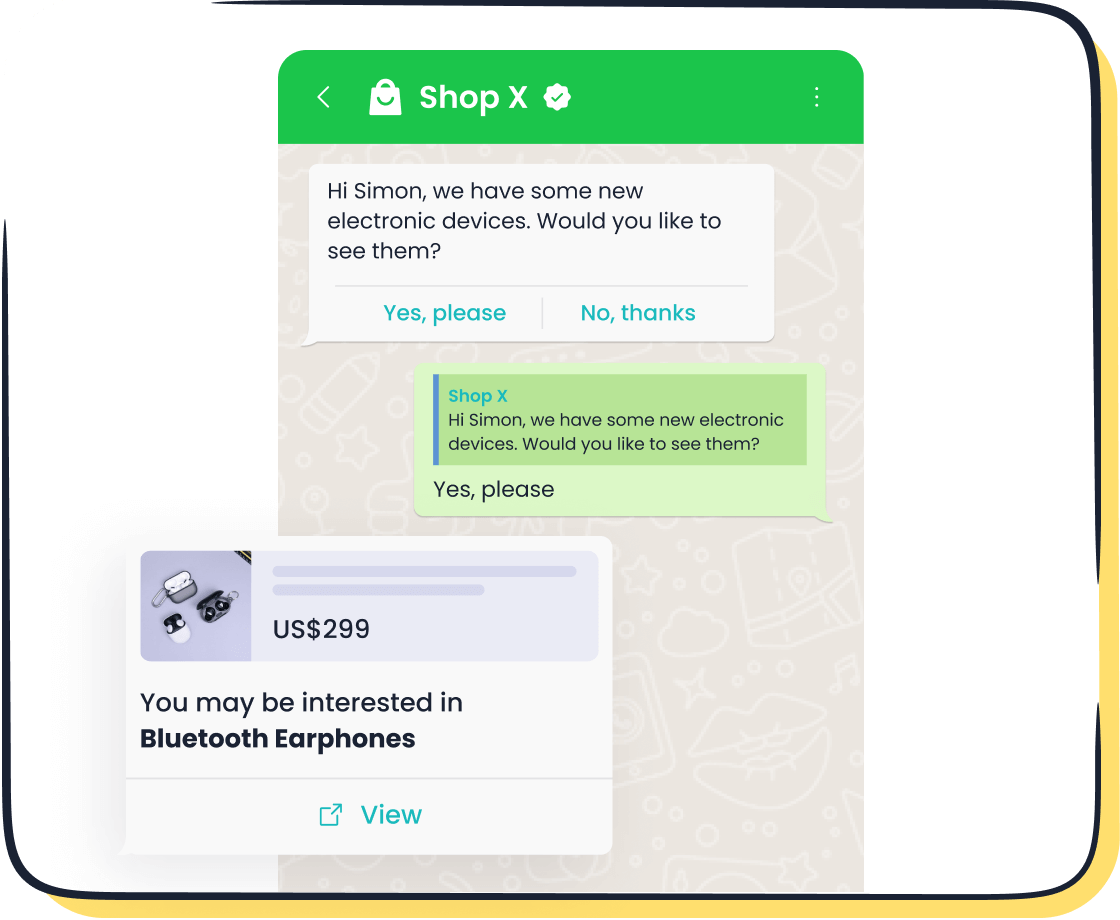
J&T Express: Boosting delivery rates with Sobot’s WhatsApp solution
J&T Express, a global logistics leader, transformed its delivery operations by leveraging Sobot’s WhatsApp Business API. Frequent address changes and cash-on-delivery challenges slowed operations in Southeast Asia and the Middle East. By adopting Sobot’s solution, J&T automated messaging workflows and integrated WhatsApp with Google Maps for precise address confirmations. Couriers used WhatsApp to communicate directly with customers, ensuring smoother deliveries.
This strategy led to remarkable results. Delivery rates increased by 35%, while operational costs dropped by 50%. Cash-on-delivery collections improved by 40%, showcasing the efficiency of WhatsApp-driven communication. J&T’s success highlights how automation and personalization can enhance logistics operations and customer satisfaction.
Tip: If you manage logistics, consider using WhatsApp for real-time updates and confirmations. It’s a proven way to streamline processes and improve customer trust.
Lessons from successful WhatsApp marketing campaigns
Successful WhatsApp marketing campaigns share common traits. They focus on metrics like delivery rates, read rates, and click-through rates (CTR). High delivery rates ensure your messages reach the audience, while CTR reflects the effectiveness of your calls-to-action. Conversion rates measure how well your campaigns drive user actions, such as purchases or sign-ups.
For example, MadeiraMadeira, a Brazilian company, achieved 3.5x higher conversion rates by sending personalized WhatsApp messages. Their campaigns included reminders, promotions, and order confirmations. Marketing Manager Pamela Melo praised the platform for enhancing customer communication and supporting innovative ideas.
Note: Track customer response times to refine your strategy. Faster replies improve engagement and lead retention, making your campaigns more impactful.
Strategies small businesses can adopt for success
Small businesses can thrive with WhatsApp marketing by focusing on personalization and engagement. Start by leveraging WhatsApp’s 98% open rate to ensure your messages are seen. Use click-through rates, which range from 45-60%, to measure the effectiveness of your content.
India provides a compelling example. 84% of small businesses use WhatsApp for client communication, and 80% report business growth due to the platform. With over 2 billion active users globally and 100 billion messages sent daily, WhatsApp offers unmatched reach.
| Statistic | Value |
|---|---|
| Global user base | 2 billion active users |
| Daily messages sent | 100 billion |
| Average time spent per day | 38 minutes |
| Small businesses expanding due to WhatsApp | 80% |
Tip: Use WhatsApp to send personalized offers or reward programs. This approach boosts customer loyalty and drives repeat business.
WhatsApp bulk messaging remains a cornerstone for marketing success in 2025. It empowers you to engage customers effectively, leveraging the platform's growing popularity in private messaging and groups. By automating campaigns, segmenting audiences, and using pre-approved templates, you can boost response rates and conversions. Staying updated with WhatsApp Business API ensures you maximize its potential.
Sobot’s WhatsApp Business API offers scalable solutions tailored to your needs. With features like bulk messaging and workflow automation, it simplifies communication and enhances customer satisfaction. Start exploring its capabilities to elevate your marketing strategy today.
FAQ
What is WhatsApp bulk messaging, and how does it work?
WhatsApp bulk messaging lets you send messages to many contacts at once. You upload a contact list, create a message, and use software like Sobot’s WhatsApp Business API to distribute it. This saves time and ensures your updates reach customers efficiently.
How can I ensure my WhatsApp campaigns comply with policies?
Always get user consent before sending messages. Use pre-approved templates to meet WhatsApp’s guidelines. Regularly review your practices to align with updated policies. Tools like Sobot’s WhatsApp Business API simplify compliance with automated opt-in management and analytics.
What are the benefits of integrating WhatsApp with CRM tools?
Integration centralizes customer data, enabling personalized communication. It tracks interactions and automates workflows. You can view purchase history, preferences, and engagement metrics in real time. Sobot’s API supports seamless CRM integration for better campaign management.
How do I measure the success of my WhatsApp marketing campaigns?
Track metrics like delivery rates, open rates, and click-through rates. Use analytics tools to monitor customer responses and refine your strategy. Sobot’s WhatsApp Business API provides detailed reports to help you optimize campaigns for higher ROI.
Can small businesses benefit from WhatsApp bulk messaging?
Yes! WhatsApp’s high open rates and affordable pricing make it ideal for small businesses. Use it to send personalized offers, reward programs, and updates. Many small businesses report growth and improved customer loyalty through WhatsApp marketing.
See Also
Setting Up Batch Messaging For Your WhatsApp Business Account
Top Strategies For Integrating WhatsApp Into Your Website
The Impact Of WhatsApp Chats On Website Interaction